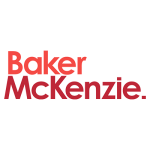M&A activity is off to slow start in 2023, for two main reasons. First, the significant headwinds faced by the Colombian economy: a slowdown in growth, dual deficits, soaring inflation and high interest rates. And second, the uncertainty generated by the reforms announced by the new president, Gustavo Petro, in key aspects of the economy such as taxation, energy transition, the regulation of household utility bills, pensions and healthcare.
Existing deal activity is being driven mostly by long-term strategic investors, persuaded by factors such as the country's track record of economic and institutional stability and resilience, the size of its economy and its demographics. Many financial investors, who are most affected by short and medium-term uncertainty, are in a wait-and-see attitude.
M&A activity in Colombia is dominated by private transactions, as only a handful of deals involve listed companies. However, transactions involving listed companies tend to be larger and more visible than even the largest private deals.
Unsolicited tender offers to acquire control of listed companies are the exception, and listed companies are still largely acquired pursuant to negotiated deals. These usually include the standard concepts of a private M&A transaction, such as representations and warranties (R&W), indemnity provisions and closing conditions. However, such deals oftentimes must be completed through public tender offers so they must also set out the mechanics of these offers, as well as protection measures against interlopers and competitors.
Deal highlights
In 2022, Akzo Nobel acquired 100% of Grupo Orbis, a listed company, and a leader in the production and sale of paints and coatings in several countries in Latin America and the Caribbean.
It was necessary to protect the deal from the risk of other suitors who may launch competing tender offers. This entailed negotiating with hundreds of minority shareholders so that ultimately 100% joined the deal, making it eligible for completion outside the stock exchange, without having to launch a public tender offer.
The Gilinski group's multiple, non-solicited tender offers for Grupo Nutresa and Grupo Sura also made headlines. These were very visible given the significance of the targets (two of the most traditional Colombian companies), the prominence of the target's controlling shareholders (members of GEA, the largest conglomerate in the country) and the aggressiveness of the acquirer (Jaime Gilinski, a banker who rose to fame in the 1990s through risky and innovative acquisitions of Colombian banks).
Gilinski's tender offers highlighted the weakness of Colombian securities regulation in several dimensions. These ranged from gaps in the rules governing fiduciary duties and conflicts of interests of managers and directors of listed companies, to regulatory requirements that frustrate competing tender offers, to the lack of rules regarding the pricing of follow-on tender offers.
Economic prospects
2022 was a good year for M&A activity in Colombia, despite the uncertainty generated by the presidential election and the likelihood that the far-left candidate would win. Deal activity was driven by strong economic growth, attractive valuations resulting from the devaluation of the Colombian Peso and the urgency to complete deals before a tax reform came into effect in 2023. This resulted in an uptick in deal volume, albeit with lower average deal values.
M&A activity has started sluggishly in 2023 due to the aforementioned headwinds and uncertainty. But deal activity should pick up in the second half of the year, once the fate of the new president's proposed reforms is known and his plans for massive investment in fields such as energy transition and renewables, healthcare, digital transformation, agribusiness and tourism are developed.
Deal trends
Deal structures and negotiations have recently been influenced by macroeconomic factors, political and economic uncertainty and lessons learned in the wake of the COVID-19 pandemic.
Type of investors
Long-term strategic investors are generating a larger share of deal activity than financial investors such as private equity funds.
Currency
An increasing number of cross border deals are being denominated in local currency.
Earn-outs and other ways of bridging valuation gaps
Dealmakers have been reluctant to rely on the performance of targets in 2020 to 2022 for their valuations, as such performance was distorted, in one form or another, by COVID. They are also wary of projecting the future performance of targets in such a volatile and uncertain environment. This has generated an increased popularity of earn-outs and other forms of deferred consideration.
Expanded material adverse effect (MAE) clauses
The Colombian market was quick to adapt MAE clauses to refer to COVID. COVID-related events were generally excluded as material adverse events, but similar circumstances (such as new pandemics) are now accepted as material adverse events.
Expanded conditions to closing
There have been deals where new conditions to closing seek to address economic volatility (e.g., the Colombian Peso shall not have devalued by more than X% between signing and closing). There were reports, in the run up to the 2022 presidential election, that some deals were subject to the condition that a certain presidential candidate did not win.
Private equity (PE)
PE has had a profound influence on the Colombian M&A market. PE investors have acquired hundreds of family-owned, informally managed companies, with limited access to financing, and have provided capital and instilled best management and governance practices, unlocking their growth potential. In the process, the Colombian M&A ecosystem (fund managers, law firms, investment banks and other advisors) has become more professional, technical and sophisticated.
In 2022 the number of deals by financial investors recovered to pre-pandemic levels. This was driven by strong economic growth in that year, attractive valuations, and the desire of dealmakers to anticipate the completion of deals before the tax reform came into effect in 2023. Average deal values were down.
The results for financial investors in Colombia have been mixed, with only a handful of fund managers receiving carried interest. This is likely because the Colombian Peso depreciated against the US Dollar by almost 300% in 10 years, and hurdle rates are typically established in US Dollars.
SPACs have not focused on the Colombian market: only two de-SPAC transactions involving Colombian targets have been publicly announced in the past two years.
Legislation and policy
Main legal framework
The Colombian Commercial Code is the principal legal framework that sets forth the legal vehicles to conduct businesses in Colombia and the rules related to corporate governance of Colombian companies, such as quorums, minority rights, fiduciary duties of directors and officers among others;
Law 964/2005 is the general statute regulating the Colombian securities market; and
Decree 2555/2010 is an all-encompassing regulation that, among many other topics, regulates public takeovers.
Regulatory authorities
The Superintendence of Finance is the authority responsible for the regulation and supervision of the financial sector (banks and insurance companies) and the capital markets (issuers, intermediaries, brokers and stock exchanges);
The Superintendence of Industry and Commerce is the competition authority of Colombia, in charge of the general anti-trust clearance regime; and
The BVC is the Colombian securities exchange that operates the trading platforms for equities, fixed income and standard derivatives securities.
The Colombian Congress approved a tax reform bill which became effective in 2023, with significant changes to the tax regime applicable to resident and non-resident companies, and the taxation of transactions:
The capital gains tax rate was increased from 10% to 15%;
Prior to the tax reform, a person could sell up to 10% of the total outstanding shares of a listed company without being subject to income of capital gains tax. That threshold was reduced to 3%;
Certain industries are now subject to a surcharge on top of their general 35% corporate income-tax rate. For example, industries such as coal and hydrocarbons have a surcharge of up to 15%; and
Dividends paid to non-resident shareholders are now taxed at a rate of 20% (up from 10%), and those paid to residents are taxed at 10% (up from 7.5%).
COVID and ESG
Travel associated with M&A transactions has reduced significantly, with even large deals being negotiated and often closed virtually.
The ways in which targets are being valued and deals are being structured have changed, as purchasers have been reluctant to rely on the financial performance of targets in the years 2020 to 2022 for their valuations. This has generated an increased popularity of earn-outs and other forms of deferred consideration.
The rising relevance of ESG has generated significant deal activity, mostly related to the energy transition. In 2021 Ecopetrol (the Colombian oil and gas company) acquired a majority stake in ISA (which operates extensive power transmission systems in Colombia, Peru and Brazil, among others), for $3.6 billion. Traditional power companies, such as Colombia's ISAGEN (owned by Brookfield), have recently made significant acquisitions in solar and sustainable hydroelectric generation.
A target's perspective and track record on ESG-related issues are established as investment criteria, and the subject of heightened due diligence review. More recently, the suitor's perspective and track record on these issues are increasingly being considered (sometimes very publicly) by takeover targets, to ensure the target ends up in the ‘right hands’.
A platform for change
President Petro was elected on a platform for profound change in Colombia's political and economic institutions. He has announced ambitious tax, labour, pension and healthcare reforms, and plans for massive investment in the industries and sectors that he believes should be the pillars of the economy, such as sustainable energy sources, healthcare, digital transformation, agribusiness and tourism.
President Petro envisages a leading role for government in all dimensions and is sometimes clearly hostile to private investment. This clashes with the mixed system that has prevailed for over 30 years, where public private partnerships are encouraged and private investment co-existed with public investment in many sectors, including healthcare, infrastructure and utilities.
Because President Petro does not control a majority of Congress and his governability depends on a coalition of heterogeneous political parties, the proposed reforms will likely be watered down. The role of government will probably be expanded somewhat, but the mixed system will probably continue, with ample room for private investment.
Market misconceptions
The Colombian M&A market is more developed than many would expect, in aspects like the quality of targets and counterparties (many of which are world-class companies), the contracts used, and the overall quality, expertise and sophistication of the Colombian M&A ecosystem.
Foreign dealmakers quickly realise the contracts used in many Colombian transactions are simplified US or UK-style agreements, that incorporate common law concepts such as representations and warranties (together with standards such as materiality and relevance), sandbagging (pro or anti) and indemnification procedures and limitations. This is buttressed by a body of local arbitral awards that have recognised these concepts by reference to their original meaning under, say, the laws of New York or England.
Some of the often-overlooked areas of Colombian M&A include:
In some circumstances, indirect transfers of the shares of Colombian companies are taxed in Colombia;
Colombia has a (relatively benign) exchange control regime, that influences the way payments can be made and may require the purchaser to register the investment with the Colombian central bank as a condition for receiving dividends and repatriating the investment;
Colombian companies are required to disclose who controls them and the identity of their ultimate beneficial owners; and
Some acquisitions are subject to pre-completion antitrust clearance.
Technology
For years the top law firms in Colombia have embraced technology in M&A, a trend that was further accelerated by the advent of the COVID pandemic.
The tools used by some top law firms include:
AI-assisted solutions for initial contract due diligence, used in identifying and reporting on specific provisions (e.g. change of control and assignment clauses);
Applications that generate deal documents from automated templates through the use of intuitive questionnaire technology;
Deal platforms that assist in managing legal processes, including conditions precedent, step-lists, requests for information and signing processes; and
Technology that enables electronic signatures and offers a full audit trail.
Going public
An investor can only acquire shares representing 25% or more of the shares of a Colombian listed company through a mandatory tender offer. Anyone who already owns 25% or more of the shares of the relevant company can only increase its shareholding by more than 5% through a mandatory tender offer.
The decision to sell shares of public companies lies exclusively with the shareholders and the management of the target does not play a formal role in the process. Unsolicited or hostile bids are allowed, but are uncommon. This is because a bidder who has not reached an agreement with the controlling shareholder will not have access to information that is not in the public domain, and because a shareholder cannot be compelled to sell its shares and can, in principle, simply abstain from accepting a public tender offer.
Tender offers are regulated so that third parties are given the opportunity to submit competing bids. In practice, competing bids are rare because the third-party bidders are at a clear disadvantage in terms of access to information and potential bidders who already have a presence in the Colombian market require prior antitrust clearance.
Notwithstanding, since all public tender offers have an interloper risk, negotiated deals usually incorporate deal protection mechanisms. These typically address the behaviour of the parties during the tender offer process (for example, requiring the sellers to only tender their shares until such time no competing tender offers can be launched) as well as break fees.
In negotiated deals it is common to subject the bidders’ obligation to launch the tender offer to the satisfaction of conditions precedent, such as securing antitrust clearance. But once a public tender offer is launched, it is irrevocable and cannot be made subject to conditions other than the offeror having secured the right to acquire the minimum number of shares it wants.
Break fees are acceptable, if the amounts involved do not hinder the right of shareholders to accept competing offers. The regulator has revised agreed break fees to reduce them whenever it considers they are excessive.
Private matters
Share purchase agreements that contemplate price adjustments based on completion accounts are clearly more popular than locked box mechanisms, but the latter, however, are not unheard of. Purchase price hold-backs or escrows are the general rule.
Earn-outs and other forms of deferred consideration are seeing increased (and hopefully brief) popularity, given the distortions generated by COVID and because of volatile macro-economic circumstances.
R&W insurance is available in Colombia but has been used sparingly. Factors such as the target's industry or sector and the track record of sellers greatly influence the pricing of these insurance policies.
Typical conditions included in private takeover offers are:
Receipt of governmental and regulatory consents (e.g. clearance by the Colombian antitrust authority);
Receipt of applicable third-party waivers;
Absence of legislative or judicial restrictions; and
No material adverse change in the target company.
It is common to include a foreign governing law (New York and sometimes English) in share purchase agreements where at least one of the parties is not domiciled in Colombia and the parties have chosen to resolve any disputes through international arbitration. This is because the Colombian arbitration statute expressly allows the parties to choose foreign governing law when the agreement is validly referred to international arbitration, which in turn requires a connection with a jurisdiction other than Colombia.
Looking ahead
While many PE transactions include the possibility of an IPO, and some shareholders agreements regulate the terms and conditions of a future IPO in significant detail, IPOs remain extremely rare as an actual exit strategy. This is probably attributable to the relative immaturity of the Colombian securities markets.
Exit deals are in a lull, along with M&A activity in general, given current macroeconomic and political circumstances.
We anticipate that firms will be relying even more on legal project management and technology to manage and execute deals, to keep the cost-of-service delivery as low as possible.




